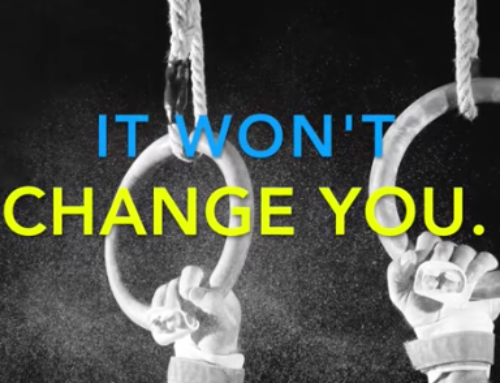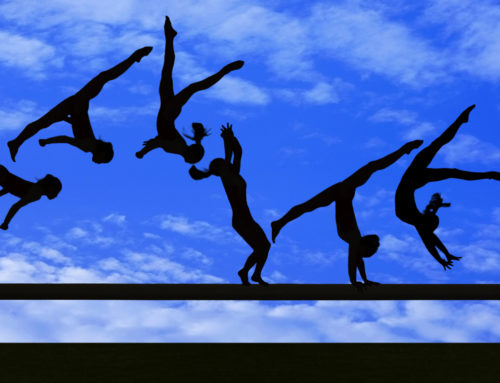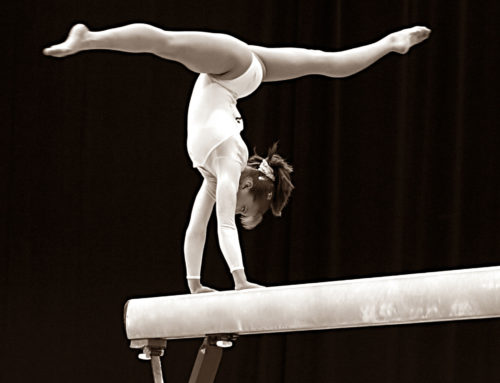How These Beliefs Hurt Your Performance
(slightly modified by Jay Thornton to apply specifically to gymnastics)
What are irrational beliefs? They are thoughts, feelings, ideas, attitudes, or ingrained ways of behaving that are self-defeating and often not based on what you can observe in reality.
They are often made up stories in your mind, which create additional stress, anxiety, or worry about your performance.
Irrational beliefs are automatic scripts you keep in your head about how you believe life “should” treat us and others. They can also be ineffective, habitual responses you learned to apply when faced with trying situations.
You will notice that some irrational beliefs are based on your own expectations, while others are born out of perfectionism. And some irrational ideologies come from worrying about what others think of your performance.
Are you aware of your own self-defeating beliefs? This is a big step in itself — you must be able to identify the beliefs that cause you to feel anxious or frustrated in competition.
Let’s start by defining some of the top irrational beliefs based on my 25 years of work helping athletes and teams improve mental toughness.
The Top Irrational Beliefs in Sports
1. Perfectionist Beliefs. An unrealistic expectation of performing perfectly leading to excessive pressure and frustration when not performing up to one’s expectations.
2. All or None Thinking. Some perfectionist athletes view their performance as black and white; or win or lose.
3. Over-Generalization. Athletes use past events, sometimes a single event, to define expectations for future performances. It then becomes a self-defeating prophecy about what should happen in future performance such as “I never perform well at this meet.”
4. Negative Self-Labels. Self-labels are some of the most destructive beliefs that will hold athletes back from reaching full potential. These are judgmental self-labels you use to define yourself as an athlete. Self-labels are hard to overcome.
What irrational beliefs or negative self-labels, based on the areas above, have been adopted in your sports career that you think have held you back?
For example, do you think of yourself as a poor competitor under pressure? This would be an example of a negative self-label that you must recognize and work to change.
Negative labels are difficult to change for many athletes, but just knowing you carry strict expectations or labels about your performance can empower you to make changes.
Adopting positive self-labels, such as “I’m a strong finisher,” can boost your confidence. Based on your past experience, what positive attributes and abilities can be turned into positive self-labels? What gives you an edge in your sport?
Want More Confidence? Check out This CD Program.
Successful athletes have learned how to overcome the beliefs that hold them back. We’ve developed The Confident Athlete, Workbook and CD program to help you do this.
The Confident Athlete: A 14-Day Plan For Superior Concentration
Hey, if you enjoy reading my mental game tips, please forward this email to other athletes, coaches, or parents who would appreciate it.
Your Mental Game Coach,
Dr. Patrick Cohn







Leave A Comment